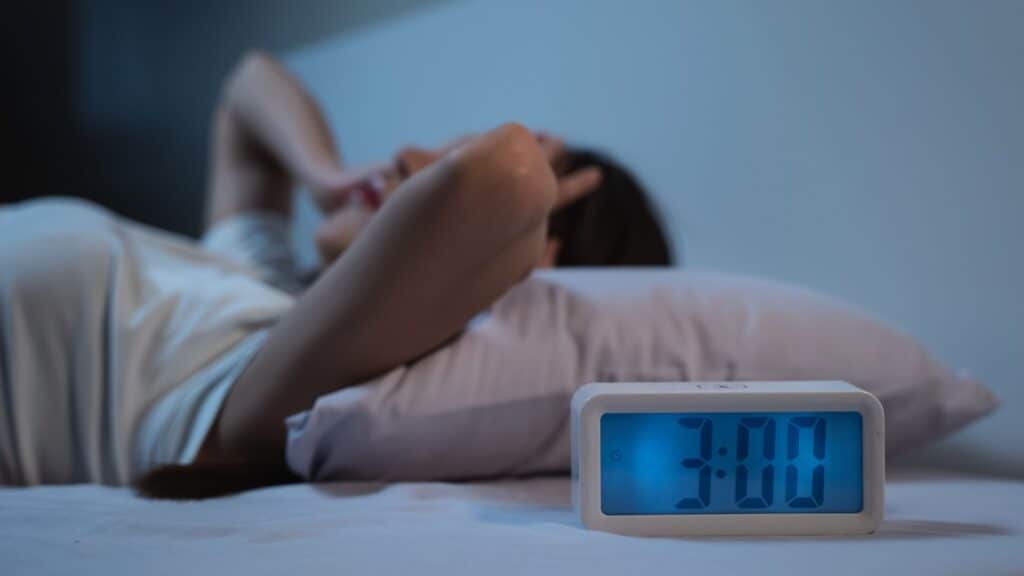6 Menopause Myths You’ve Been Told for Years—Here’s What’s Actually True!
Like all aspects of menstruation, menopause isn’t talked about nearly enough. One might have a general understanding of “menopause means no more periods” or know about hot flashes, but beyond that, what do you really know about menopause?
Menopause is a natural phase in a woman’s life, yet it is surrounded by numerous myths and misconceptions. These myths can lead to misunderstandings and unnecessary anxiety. So, we want to bust some myths and give you the facts about menopause.
Myth 1: Menopause Begins at Age 50

While the average age for menopause is around 52, it can occur anytime between the late 30s and early 60s. Like the beginning of menstruation, the end of menstruation is different for everyone. Some girls get their periods at 10 years old, while others get their first one at 16.
Ages Range

Menopause is officially diagnosed when a woman has not had a menstrual period for 12 consecutive months. The years leading up to menopause, known as perimenopause, can vary greatly in duration and symptom onset. Some women may experience pre-menopause for 10 months, and then get their period, meaning the clock resets again (which sucks).
Myth 2: Hot Flashes Are the Only Symptom

Is it hot in here or is it just my ovaries? Hot flashes are a well-known symptom, but menopause can cause a wide range of symptoms, including mood swings, sleep disturbances, vaginal dryness, and cognitive changes.
Other Common Symptoms

Plus, women can develop insomnia, hair loss, unusual body odors, tinnitus (ringing in the ears), skin irritation, digestive issues, vertigo, weight gain, muscle aches, and more. These symptoms often begin during perimenopause and can continue into post-menopause. As you can see, the unpleasantness associated with menopause goes far beyond a few hot flashes, which are awful on their own anyway.
Myth 3: Menopause Leads to a Decrease in Sex Drive

While some women may experience a decrease in libido, this is not universal. Factors such as hormonal changes, mood alterations, and physical symptoms like vaginal dryness can impact sexual desire. Some women may even experience a heightened libido during this time due to hormone fluctuations.
Work With What Is At Hand

Even if there is a decrease in libido, that doesn’t mean menopause has to be a sexless time. Addressing these issues by using lubricants or hormone therapy, can help maintain a healthy sex life. No need to close up shop until it’s over!
Myth 4: Menopause Cannot Be Treated

Menopause is not an illness but a natural biological process. Because this is a natural part of a woman’s life cycle, people have an “it is what it is” attitude toward it, which belittles the brutal symptoms many women experience. And when we say brutal, we mean it, because some severe symptoms can make it hard to live normally.
Menopause CAN Be Treated

However, its symptoms can be managed through lifestyle changes, non-hormonal therapies, and hormone replacement therapy (HRT) if necessary. Treatments are available to alleviate symptoms like hot flashes, mood swings, insomnia, and vaginal dryness. For some, menopause can last over a dozen years, and with modern treatment options, there’s no reason to suffer through it without help.
Myth 5: Menopause Only Causes Physical Symptoms

Hot flashes and muscle aches are only a fraction of the equation here. Menopause affects both physical and mental health. During our normal menstrual cycle, hormone fluctuations affect how we feel throughout the month. The hormone changes involved in menopause are typically more drastic, leading to a never-ending wave of emotions that can be overwhelming.
Menopause Can Affect Us Emotionally

Hormonal fluctuations can lead to mood swings, anxiety, and depression. It’s also very common for women to be more irritable, insecure, and angry. Women also report cognitive symptoms such as memory lapses and difficulty concentrating. These emotional and cognitive changes are as significant as the physical symptoms.
Myth 6: Menopause Lasts Only a Few Years

The duration of menopause varies widely among women. The menopausal transition can last about seven years on average, but it can extend up to 14 years. Yes, you read that right, FOURTEEN YEARS.
Menopause Is On Its Own Timeline

This period includes perimenopause, menopause, and post menopause, with symptoms potentially persisting throughout. Women with milder symptoms may only experience menopause for a year or two, but not everyone is so lucky. If you thought menopause was a neat one-year thing, that is completely false.
Ending the Misunderstandings Around Menopause

Understanding these myths and the realities of menopause can help women better navigate this life stage and help people in their lives be more supportive. However, the basics of menopause should be common knowledge. The sex education in America is abysmal. Do they even mention menopause in those classes?
Sex education shouldn’t just be about unrolling condoms on bananas; it needs to be about all reproductive and hormonal processes, and that includes later-in-life occurrences, such as menopause and erectile dysfunction.
Education and Self-Education is Paramount

Until the American education system steps up, we’ll be here to inform you. But it’s important that we all stop spreading myths about menopause. If you’re a woman entering or currently in this phase of your life, know that you can and should seek treatment for debilitating symptoms. There’s no reason to suffer for years on end, despite the societal norms in place.
Hormone Replacement Therapy and Depression: Finding Relief During Menopause

Most women are aware that menopause can bring hot flashes, sleep disturbances, and even affect bone density, but did you know that there is a relation to depression? In a study published in the Journal of Midlife Health, the prevalence of depression symptoms among peri- and post-menopausal women was 41.8%. Recent research has highlighted a promising approach to address symptoms of depression during menopause: Hormone Replacement Therapy (HRT).
READ: Hormone Replacement Therapy and Depression: Finding Relief During Menopause
Hormone-Induced IBS: Mastering Symptom Management

While irritable bowel syndrome (IBS) can affect everyone – men and women, young and old – women’s hormone fluctuations can make symptoms worse. This article is a comprehensive guide on managing hormone-induced IBS symptoms.
READ: Hormone-Induced IBS: Mastering Symptom Management
Join Us

Join us on this empowering journey as we explore, celebrate, and elevate “her story.” The Queen Zone is not just a platform; it’s a community where women from all walks of life can come together, share their experiences, and inspire one another. Welcome to a space where the female experience takes center stage. Sign up for our newsletter so you don’t miss a thing, Queen!







